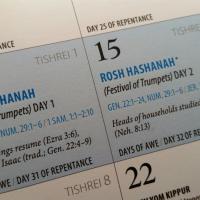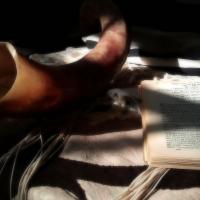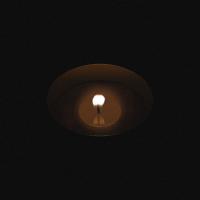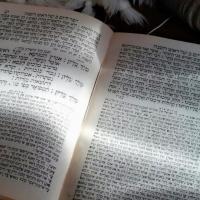Beth Immanuel is a friendly and welcoming community. Click here to learn what to expect when you visit.
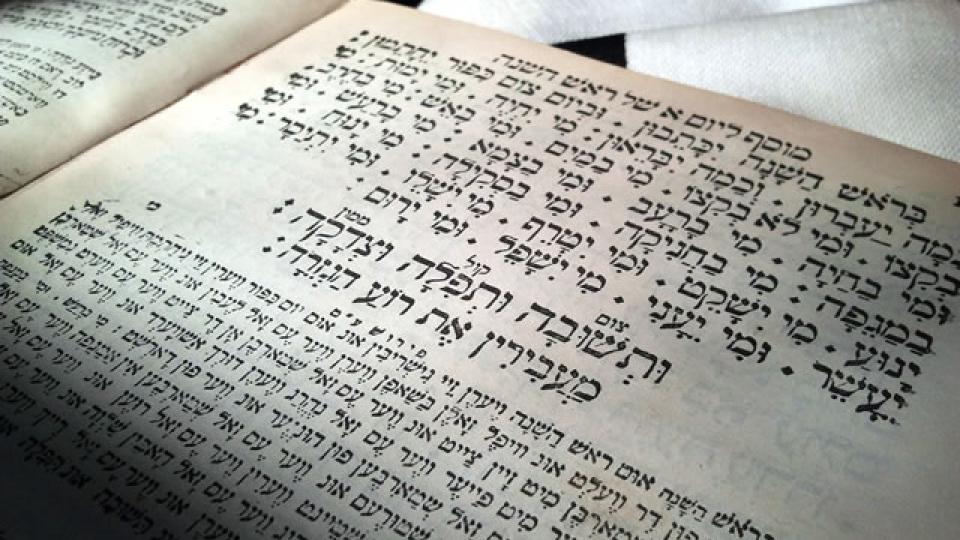
Medicine for the Soul: Repentance, Prayer and Righteousness
A man goes to the doctor to get some test results. As he sits in the doctors office he sees that there are three folders on the doctor’s desk. One is labeled Good News. Another is labeled Bad News. And yet another is labeled Bad News and Good News.
The doctor opens this latter file and takes out a written diagnosis of the man’s condition. The man is relieved to see that it did not come out of Bad News file, but he is equally concerned to realize that neither did it come out of the Good News file. The doctor looks over the report and then says, “I’ve got some bad news and some good news. The bad news is that your test results are in, and you definitely have the fatal, dread disease such and such. You only have ten days left to live.”
Then man says, “Doctor, how can there be good news? That’s horrible.”
The doctor says, “The good news is that there is a cure. Its an experimental procedure, its rigorous, it is demanding and difficult, but past results have been good, and I have every reason to believe that if you undergo this treatment, you will pull through.”
The Good News and the Bad News
This story, which sounds like the set-up for a bad joke, describes the situation of the soul every year on Rosh Hashanah (Feast of Trumpets). Every Rosh Hashanah is like a rehearsal for the final judgment. The book of Daniel describes the final judgment with the Ancient of Days—God himself—taking his seat on the throne of judgment, saying, “And myriads upon myriads were standing before Him; the court sat, and the books were opened” (Daniel 7:10). Revelation 20:12 describes the same scene saying, “I saw the dead, the great and the small, standing before the throne, and books were opened; and another book was opened, which is the book of life; and the dead were judged from the things which were written in the books, according to their deeds.”
Jewish tradition explains that the heavenly court of judgment keeps three books. (See b.Rosh Hashanah 16b.) In the Book of Life they record the names of the righteous. In the Book of Death they record the names of the wicked, and in theBook of the Intermediates they record the names of the not-so-good but not-so-bad (which is most of us). According to Jewish tradition, the day of Rosh Hashanah is a small, annual day of judgment on which the heavenly court convenes and the three books are opened. The court reviews the cases of those recorded in the Book of the Intermediate, and each person’s name is removed from that book and written into one of the other two books. Ten days later on Yom Kippur (Day of Atonement) everyone’s name is sealed in the Book of Life or in the Book of Death. There is, however, a cure, a remedy for removing the evil decree, which has been prescribed by the Sages of old.
In the liturgies for the High Holidays of Rosh Hashanah and Yom Kippur it says, “Repentance, prayer and righteousness remove the evil decree!” Repentance, prayer and righteousness is also the prescription of Yeshua.
Yeshua Teaches about Repentance
The sound of the shofar blown for forty days before Yom Kippur and blown 100 times in the synagogue on Rosh Hashanah is meant to awaken us, to rouse our slumbering souls and to focus us on the things of the Kingdom of Heaven. It is supposed to inspire us to repent.
The Master was always talking about repentance. Repentance means to quit sinning and turn back to righteous living. The message of repentance was the very heart of His ministry. Most of His parables, it seems, are about repentance. The gospel, good-news that Yeshua proclaimed was the imperative message, “Repent, the Kingdom of Heaven is at hand” (Matthew 4:17). Once He healed a man and He said, “Do not sin anymore, so that nothing worse happens to you” (John 5:14). Another time he told a woman, “I do not condemn you, either. Go. From now on sin no more” (John 8:11). “Sin no more” is the simple meaning of repentance.
True repentance is an ongoing process which transforms us. It is not a one time thing that declares, “I’m never going to do that again.” Instead, it is a constant reprioritization of our lives, placing the things that matter to God ahead of the things that matter to our selfish flesh.
We are supposed to be different from the rest of the world. We are supposed to be disciples of Yeshua, reborn, transformed, godly creatures. People in the outside world are supposed to be able to look at your life and say, “That’s what a godly person looks like.” What more could a person want out of life than an epitaph stating: “Here lies a true disciple of Yeshua.”
The most pressing matter of repentance, though, is making things right with others. The Master says, “If you are presenting your offering at the altar, and there remember that your brother has something against you, leave your offering there before the altar and go; first be reconciled to your brother, and then come and present your offering” (Matthew 5:23–24).
According to Yeshua, a disciple turns the other cheek. A disciple does not repay injury with harm. A disciple gives to the one who asks, and does not demand repayment. A disciple repays evil with good. A disciple always forgives. A disciple goes the extra mile.
Yeshua Teaches about Prayer
Jewish tradition teaches that prayer is a remedy for sin that can remove the evil decree of judgment. At first, this sounds like a message of “works” contrary to the message of the Gospel. But let’s consider the Master’s teachings about prayer.
Yeshua taught us to pray. He often spoke about prayer and the importance of confessing one’s sins. In Luke 18, He tells the story of the Pharisee and the tax collector who both stand in the Temple to pray. The tax collector beats his breast with his fist and confesses his sin in contrition declaring, “God, be merciful to me, the sinner,” while the Pharisee thanks God for his own exalted status. Yeshua says that the tax collector was justified before God while the Pharisee was not.
Moreover, the Master taught us that through our prayers, our sins will be forgiven if we will pray these words, “Forgive us our debts, as we also have forgiven our debtors” (Matthew 6:12).
For if you forgive others for their transgressions, your heavenly Father will also forgive you. But if you do not forgive others, then your Father will not forgive your transgressions. (Matthew 6:14–15)
What a precious gift this promise is! What a miracle! What a cure! If we will forgive others, God will forgive us. Yeshua says so.
Conversely, Yeshua is very clear that if we are harboring un-forgiveness for those who seek our forgiveness, then God cannot pardon us. Have you ever said the words, “I’m sorry isn’t good enough.”? If so, how can you turn to God and say, “I’m sorry for my sins, please forgive me, as I have forgiven those who sin against me.” Yeshua illustrates this in the parable of the ungrateful debtor in Matthew 18:23–35. The parable concludes with the king revoking his absolution of the unforgiving man’s debts. Yeshua concludes with the frightening words, “My heavenly Father will also do the same to you, if each of you does not forgive his brother from your heart.”
Therefore, we learn, that from Yeshua’s perspective, the remedy for sin involves prayer. Prayer’s of confession, prayers petitioning for forgiveness, and prayers of forgiveness for others. These are the very types of prayers prescribed by the liturgies of the High Holidays of Rosh HaShanah and Yom Kippur.
Yeshua Teaches about Righteousness
Jewish tradition teaches that acts of righteousness, particularly the giving of charity, is a remedy that can remove the evil decree of judgment. When the High Holiday liturgies of Rosh Hashanah and Yom Kippur prescribe “righteousness” as a means of removing the evil decree, they mean the practice of righteous deeds. When used in a rabbinic context, the Hebrew word righteousness (tz’dakah) specifically means the giving of alms since giving to the needy is considered among the greatest of all acts of righteousness. So when the holy day liturgy says that righteousness removes the evil decree, it has charity, the giving of money, in view.
Yeshua had quite a bit to say about doing acts of righteousness and giving charity. There is no other subject the Master spoke on more than the giving of charity. To Yeshua, this was a matter of utmost importance for his disciples. He taught that we should give and give generously to the poor, to those in need and to the work of the Kingdom. He tells several parables to illustrate the point, and often teaches on the subject. Moreover, He speaks of reward for giving generously. In many parables, he illustrates the point that by giving generously, we earn merit in heaven. He tells His disciples this, “Store up for yourselves treasures in heaven, where neither moth nor rust destroys, and where thieves do not break in or steal” (Matthew 6:20), implying it is possible to earn reward in heaven. The following passage from Matthew illustrates that Yeshua believed doing acts of righteousness can earn a person heavenly reward:
Beware of practicing your righteousness before men to be noticed by them; otherwise you have no reward with your Father who is in heaven. So when you give to the poor … do not let your left hand know what your right hand is doing, so that your giving will be in secret; and your Father who sees what is done in secret will reward you. (Matthew 6:1–4)
In these words, Yeshua tells us to do our giving in secret. The Sages advise the same mode of giving alms. R. Eleazar said, “A man who gives charity in secret is greater than Moses our Teacher, for of Moses it is written in Deuteronomy 9:19, ‘For I was afraid because of the anger and hot displeasure of the LORD,’ but regarding the one who gives charity [in secret] it says in Proverbs 21:14, ‘A gift given in secret subdues anger.’”
How do you know if you are giving enough? You’re not. It is not possible to give enough, and our circumstances always constrain us from giving enough. However, it is always possible to give more, in some way or another. So the question for the disciple of Yeshua is not “How much do I have to give,” but, “How much more can I give.”
Medicine for the Soul
The High Holiday season is the time of year to get serious about repentance, prayer and acts of righteousness. On Rosh Hashanah we are diagnosed as sinners. Like the sick man diagnosed at the beginning of the article, we have only ten days to live (so to speak). On the Yom Kippur, the gavel of judgment falls. It is written, “The wages of sin is death” (Romans 6:23). Repentance, prayer and acts of righteousness are the only things that we can do to help our case.
Of course, the classic protestant should object and say, “This is legalism. This sounds like you are suggesting that we can do good works to atone for our sins while ignoring the atoning work of the cross. Salvation is a free gift through grace and not by works lest any man should boast!”
When we discuss the High Holidays, we are not talking about one’s eternal destiny, we are talking about life in the here and now. We are not speaking about whether or not a person is going to heaven or hell. The High Holidays are concerned with the sinful state of your heart, not your eternal destiny. A person may be a believer and yet still be mired in sin. Sin always has consequences.
Repentance, prayer and righteousness is the remedy for a sick soul. It’s tough medicine. Perhaps you are thinking, “Surely there is an easier way.” We say to the doctor, “Doctor, can’t you just give me a theological pill? Isn’t there some easy drug I could take instead or some abstract theological concept I can believe in instead?”
New Year’s Resolutions
Real spirituality is like anything of value in life. It does not come easy; it does not come free. Have you ever tried to lose weight? Is it easy? Of course its not easy. It takes immense discipline to govern yourself about the food you eat, and it takes great effort to exercise, not just once in a while but regularly. So why do we expect spiritual growth and discipleship to Yeshua to be easier than losing weight? When we admit our need for repentance, prayer and righteousness we are not talking about earning salvation in the world to come, we are talking about living the committed life in this world—a life of faith and godliness.
Every secular New Year, on January 1, thousands of people make New Year’s resolutions. “I’m going on a diet this year” or “I’m quitting smoking this year” or “I’m going to exercise this year” or whatever the case may be. That is similar to the opportunity granted to us by the biblical new year of Rosh Hashanah. The High Holidays give us a chance to improve ourselves, to resolve to try harder. God doesn’t expect us to be perfect, but He does expects us to be better.
This is the drama of the high holidays. We have ten days between Rosh Hashanah and Yom Kippur. Ten days to undergo this radical treatment. You can do it. Don’t listen to the devil, and don’t listen to your flesh. Listen to the spirit within you. You can be better. Set your eyes on the prize of a good inscription in the Book of Life for a sweet new year and take your medicine: repentance, prayer and acts of righteousness.

